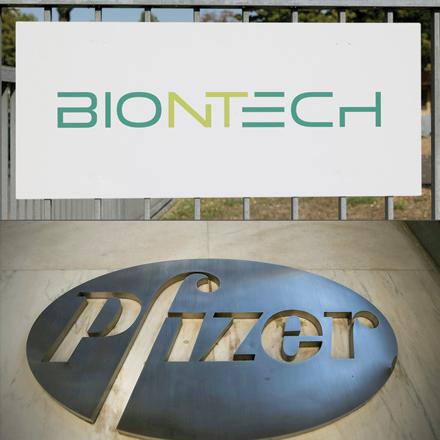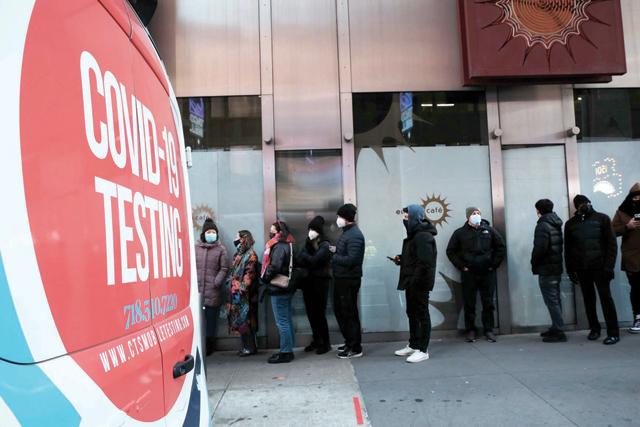You are here
Merkel urges 'fair' distribution of coronavirus vaccines
By AFP - Jan 26,2021 - Last updated at Jan 26,2021

In this file photo taken on November 17, 2020, an illustration photo shows vials with Covid-19 vaccine stickers attached and syringes with the logo of British pharmaceutical company AstraZeneca (AFP photo)
BERLIN — German Chancellor Angela Merkel urged a "fair" distribution of coronavirus vaccines across the world on Tuesday, warning that the memories of countries left out in the race for the life-saving jabs would persist.
"Money is one thing, but the other thing in a time of scarcity is the availability of the vaccine. Here it's about a fair distribution, and not about a question of money," she told an online forum.
"Let's not kid ourselves, the question of who gets which vaccine in the world will of course leave new wounds and new memories because those who get such emergency help will remember that."
Amid a global scramble for the jabs, countries particularly in the developing world are increasingly having to weigh up diplomatic and logistical considerations as they place their vaccine orders.
While developed countries have so far only approved vaccines by Western makers Pfizer-BioNTech and Moderna, many in the developing world have turned to China's Sinopharm or Russia's Sputnik V vaccine.
South African President Cyril Ramaphosa on Tuesday lashed out at "vaccine nationalism," accusing rich countries of bulk-buying coronavirus vaccines and hoarding them to the detriment of others.
Meanwhile, German Health Minister Jens Spahn on Tuesday joined EU calls for export controls on coronavirus vaccines amid discontent over a delay in rolling out pharmaceutical group AstraZeneca's jab to member countries.
Spahn said he was in favour of "vaccines leaving the EU needing a licence, so that we at least know what is being produced, what is leaving Europe — and if it is leaving Europe, whether there is then a fair distribution".
Delays were understandable due to the complexity of the manufacturing process, he told the ZDF broadcaster, but they must "affect everyone fairly and equally".
Last Friday, British-Swedish company AstraZeneca said it would not meet its contractual delivery commitments to the European Union because of unexplained “reduced yields” in its European supply chain.
Europe’s regulator EMA has not yet approved AstraZeneca’s vaccine for general use in the bloc.
But the EMA is poised to add AstraZeneca’s to the list of approved vaccines by the end of this week, on the understanding that it would be already on hand and available for immediate rollout.
The delivery delay warning by AstraZeneca came a week after US group Pfizer said it was also cutting early distribution volumes of its vaccine produced with German firm BioNTech.
Together, those announcements risk stalling EU vaccination programmes that depend on people getting two jabs weeks apart.
The bloc issued an angry warning to AstraZeneca on Monday, with EU Commissioner for Health Stella Kyriakides saying the delay was “not acceptable to the European Union”.
Kyriakides said Brussels would propose a “transparency mechanism” to track shipments of vaccine exported from the EU to non-member countries.
European Commission chief Ursula von der Leyen pledged a week ago to inoculate 70 per cent of adults in the EU by the end of August.
The European Union has so far authorised two vaccines — the BioNTech/Pfizer and Moderna ones.
Related Articles
FRANKFURT AM MAIN — Europe's medicines regulator said Tuesday it would decide by December 29 whether to grant emergency approval to a COVID-
BRUSSELS — The European Commission on Monday authorised a vaccine from US company Novavax as its fifth official jab for use across the Europ
BUDAPEST - Hungary on Thursday became the first European Union member to grant preliminary approval for Russia's Sputnik V coronavirus jab,



















